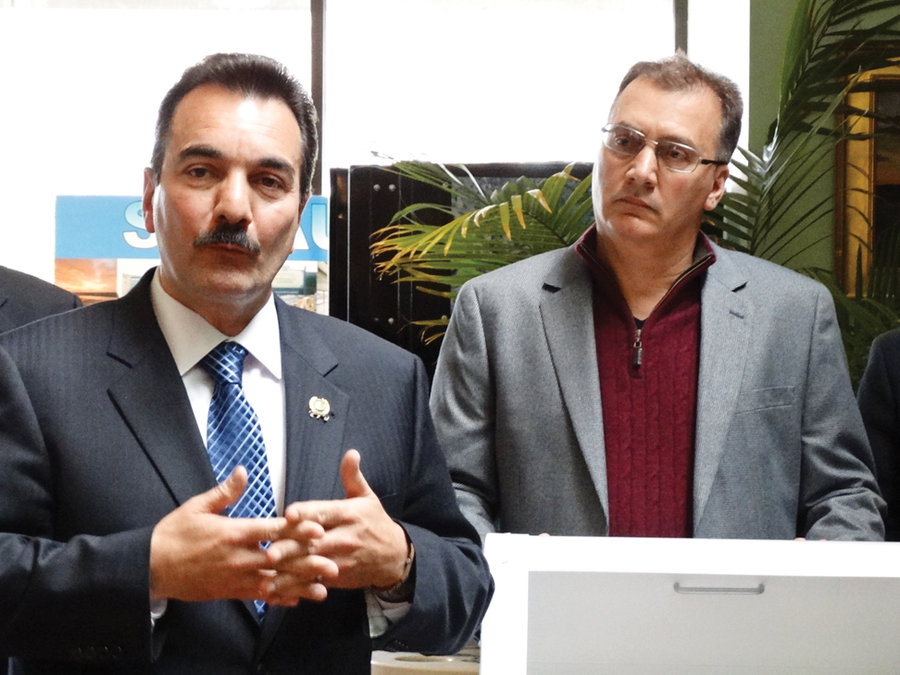North Bergen homeowners may save significant tax dollars over the long term thanks to a recent change in state law.
The law, which was passed to consolidate the New Jersey Meadowlands Commission and the New Jersey Sports and Exposition Authority, included several other notable components. Among them was reestablishing the Hackensack Meadowlands Transportation Planning District and, perhaps most significant to North Bergen residents, eliminating the property tax sharing program in the New Jersey Meadowlands region.
Since the 1970s, North Bergen, Secaucus, and other towns in the Meadowlands region have been forced to contribute to a “tax sharing” agreement to help out municipalities that could not develop in the region for environmental reasons.
Tax sharing has been a longstanding bone of contention in the area, costing millions of dollars to certain municipalities annually.
The new law will eliminate the payments by North Bergen and others while allowing the recipient municipalities to continue receiving funding annually.
“For the last two or three budget cycles we budgeted anywhere from $700,000 to $800,000 annually for the contribution we needed to make as a payer,” said Town Administrator Chris Pianese. “The estimate for the calendar year 2015 was over a million dollars.”
The amount fluctuated annually based on various calculations. “There was some formula built in to keep it somewhat stable but it was unpredictable,” said Pianese.
If tax sharing had not been eliminated in 2015, it would have impacted the town budget and ultimately the taxpayer.
“It’s been a 10 year work in progress.” –Vincent Prieto
____________
Over the past two years, thanks to the efforts of Assembly Speaker Vincent Prieto, tax sharing has been partially or entirely funded by the state. In 2013 New Jersey picked up 80 percent of the tab. In 2014 the state funded it entirely. But those were one-time exceptions and there was no guarantee of what would happen from year to year.
Now there is. Which is very important for the town from a budgeting perspective. Especially since the town budget must be prepared before the state budget is adopted, so there was no way of knowing how much the town would be expected to pay in tax sharing each year.
“For the last three years we’ve been going into this budget preparation period not knowing where we would be,” said Pianese. “This is a tremendous accomplishment, to know that moving forward it has been eliminated from the budget. I totally commend Speaker Prieto and Sen. [Nicholas] Sacco on their tireless efforts to finally put a permanent fix in place and help towns like North Bergen to provide budget relief.”
Four decades of debt
“It’s been a 10 year work in progress,” said Speaker Prieto of the fight to eliminate tax sharing.
The New Jersey Meadowlands Commission (originally called the Hackensack Meadowlands Development Commission) was created in 1968 for the orderly development of the Meadowlands. Tax sharing was established in 1972 with the goal of distributing the costs and benefits of economic development fairly and equitably throughout the region.
“A master plan was created,” said Prieto. Some towns, like Secaucus, were allowed to develop. Others were subject to restrictions. “Kearny had the dumps and they were zoned for that and those stayed in place. You could make the argument that Secaucus got development and Kearny got landfills.”
A complex formula was created to collect and distribute funds among the 14 municipalities in the Meadowlands. Secaucus was always the biggest payer, since 88 percent of the town was overseen by the Meadowlands Commission, which also controlled all zoning ordinances in that region.
The program worked, at least initially. Development took off in the Meadowlands. But times changed, and tax sharing didn’t. The Meadowlands Commission continued to have complete say over development in towns under its sway. Secaucus Mayor Michael Gonnelli and North Bergen Mayor and state Sen. Sacco were among the voices calling loudly for reform.
When Prieto became budget chairman in 2012 he was able to push for temporary relief, hence the following two years the state kicked in to help cover the costs of tax sharing. Then in 2015 a comprehensive solution was found when it was included in the new bill.
Part of the hold-up until now was finding a way to continue paying the recipients while taking the burden off the payers. The answer was a new 3 percent tax on all hotels in the area, with the proceeds to go to the tax sharing recipients.
“Hotels in the district have a great occupancy rate,” said Prieto. “Ninety percent year round. Secaucus itself has 13 hotels. It will be 14 soon. People come from out of state. It offers real tax relief to all [local municipalities].”
‘A win-win for the whole region’
The new law also gives back home rule to the municipalities within the Meadowlands region, so they have control over their own zoning and development. And it merges the two state agencies into one entity.
“This cuts red tape and increases efficiency,” said Prieto. “It’s a great model for overlapping services and a natural fit for the future of this region.”
“We adopted everything environmental from the Meadowlands Commission,” he continued, although the lead agency in the combined entity will be the Sports Authority. “That’s because there was already financing in place and mechanisms for the Triple Five theme park, so that had to be lead agency. They will see how we can attract business to this area and tourism. That is going to part of their job for this region.”
Triple Five are the developers of the American Dream megamall and amusement park being developed in the Meadowlands. It was previously known as Xanadu.
“I’ve always thought that as gaming potentially comes to the north, this would be a perfect agency to be able to assist in that venture,” said Prieto. “This is a win-win for the whole region.”
Art Schwartz may be reached at arts@hudsonreporter.com.
